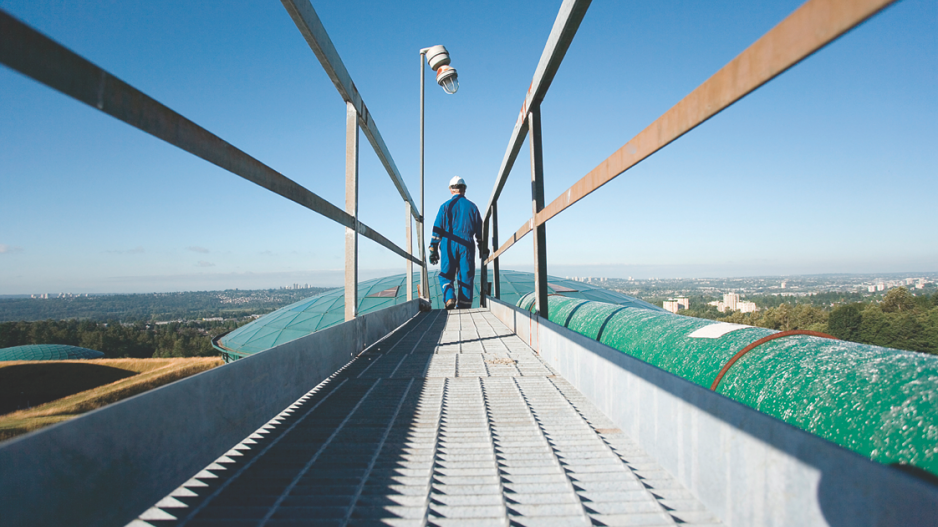The federal government made the same mistakes on the Trans Mountain pipeline expansion that it did on the Northern Gateway project when it failed to do “deep” consultations with First Nations, the lawyer representing the Squamish Nation told a Federal Court of Appeal last week.
SFN is among the five First Nations that are part of a consolidated appeal of the federal government’s approval of the $7.4 billion expansion project.
There were originally six, but last week, one day before it was scheduled to put its case before the three-member Federal Court of Appeal, the Musqueam Indian Band withdrew from the case.
Although the Musqueam still have concerns over increased tanker traffic in local waters, Musqueam Chief Wayne Sparrow, who could not be reached for comment by press time, told the Vancouver Sun his people had decided to try to negotiate with the federal government to address their concerns rather than fight it in court.
While each of the remaining five First Nations has different concerns over the pipeline’s expansion, Matthew Kirchner, the lawyer representing the Squamish Nation, said they all share one common grievance: the federal government failed to do the “deep” consultations that are required on a project with such significant potential impacts on First Nations rights.
Pointing to the Federal Court of Appeal’s decision last year in Gitxaala vs. Canada, Kirchner suggested Canada appears not to have learned from its mistakes.
In that decision, the court found the Government of Canada had failed to do a proper consultation with the Gitxaala over the Northern Gateway pipeline.
The Appeal Court overturned the approval given to Enbridge Inc. (TSX:ENB) for the Northern Gateway pipeline, and the federal government declined to appeal that decision to the Supreme Court of Canada, which effectively killed the project.
Kirchner said government officials responsible for consulting First Nations on the Trans Mountain expansion project were little more than note-takers, with no authority to negotiate.
“If large projects like this are so important to the national interest, then cabinet should devote more senior staff, or higher level staff, who have the ear of senior people or cabinet ministers to be on the front lines of these consultations,” Kirchner said. “It doesn’t work to have people who are only there to take notes.”
Earlier in the week, the lawyer for the Tsleil-Waututh Nation made similar points, but also argued that the National Energy Board (NEB) breached the Canadian Environmental Assessment Act (CEAA) when it gave only cursory consideration to increased oil tanker traffic.
“The CEAA statutory process was not followed, Canada’s duty to consult and accommodate Tsleil-Waututh was not discharged and the board selectively picked and chose when to apply the Constitution,” said Scott Smith, one of the lawyers representing the Tsleil-Waututh.
The $7.4 billion expansion involves twinning of the existing pipeline running from Alberta to Burnaby, tripling its capacity to 890,000 barrels per day from 300,000 and increasing oil tanker traffic in Burrard Inlet to 34 from five tankers per month.
The Tsleil-Waututh argued the NEB erred when it excluded marine shipping as part of its environmental review. The NEB restricted itself to the pipeline and terminal operations and the question of whether it was in the public interest to allow its expansion.
Prior to streamlining regulatory processes in 2012, the project would have been considered jointly by the NEB and Canadian Environmental Assessment Agency. But in 2012, the NEB was given the authority to conduct environmental assessments.
While the NEB considered oil spill impacts, it did not include impacts of increased tanker traffic on the marine environment as part of the environmental assessment – even though about 70% of the oil that would be delivered via the expanded pipeline would be shipped to foreign markets by oil tanker.
“The respondents argue it was reasonable to exclude marine shipping activities because those are not regulated by the board,” Smith said.
But without marine shipping, Smith said, the Trans Mountain pipeline is “the proverbial pipeline to nowhere.”
He said any activity that is “incidental” to a project can be considered under the CEAA, and in the case of Trans Mountain it should have, because tanker traffic is more than incidental to the project.
“Nothing in CEAA permits the board or the GIC [governor-in-council] to exclude physical activities that are incidental to a pipeline because they are not regulated by the board,” Smith said. “If Parliament wanted to impose such a requirement, it would have done so expressly. It did not.”
In its submission as an intervener, the B.C. government argued that the governor-in-council failed to give its reasons for concluding that the expansion would not have significant adverse environmental impacts.
Thomas Berger, B.C.’s counsel, said the GIC was obliged by Parliament to give reasons for its decisions, and on the environmental equation it failed to do so. The GIC stated that the expansion “is not likely to cause significant adverse environmental effects.”
“That is not a reason; that is a verdict,” Berger said.
Berger’s argument appeared to be that the GIC should have provided the reasons for its conclusion.
He also repeated the criticism that “Alberta gets the lion’s share of the benefits” from the expansion.
“B.C. bears the entire risk of the effects of marine spills,” Berger said.
At one point, Berger was corrected by Justice Eleanor Dawson when he stated the expansion would result in Aframax tankers in local waters on “a scale never seen before in Vancouver harbour.”
Dawson pointed out Aframax tankers already transit the harbour.
The eight-day hearing resumes on October 10 with arguments from Kinder Morgan Canada (TSX:KML).




